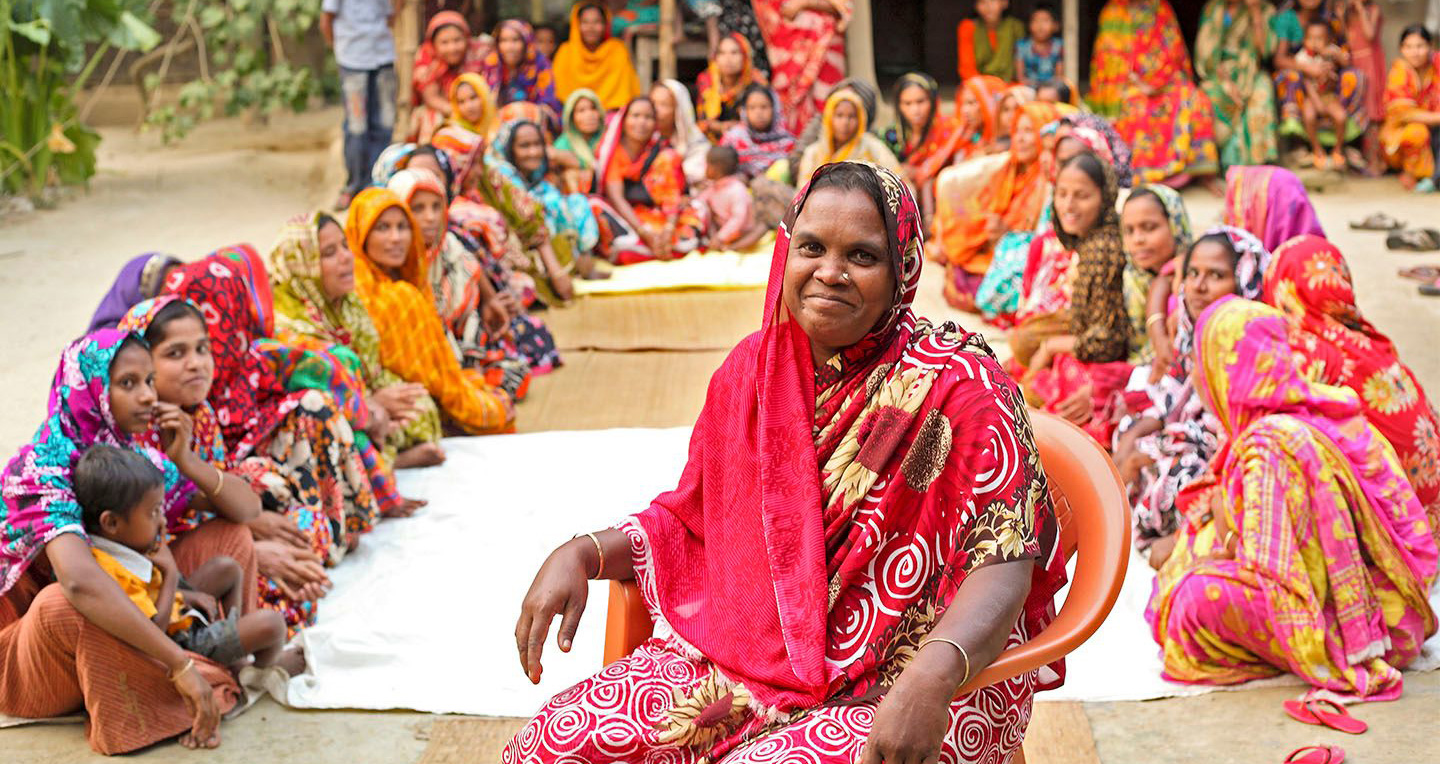Julia Roberts: “Every person and organization dedicated to eliminating poverty and inequality should know about BRAC”
BRAC USA’s Julia Roberts shares her first update as President and CEO.
BY JULIA ROBERTS
I first learned of BRAC’s life-changing work during my earliest days of development, over 25 years ago.
At the turn of the millennium, I was working with the Peace Corps as a volunteer extension officer for a Ministry of Health. We were struggling to increase vaccine coverage to fend off an impending yellow fever outbreak.
Although vaccination and public health were key national priorities, the very people we intended to help faced different challenges. In each household we entered, families advocated for their priorities — livelihoods, education, electricity, affordable transportation.
This experience highlighted my naivety and the inadequacy of our efforts. More holistic approaches had to be taken.
BRAC was, at the same time, setting the standard for holistic approaches: born in and driven from the Global South.
Every person and organization dedicated to eliminating poverty and inequality should know about BRAC and the opportunity to have an outsized impact together. Unfortunately, most Americans aren’t familiar with the incredible history and impact of BRAC.
As the U.S. team’s new CEO, I hope to change that — one conversation at a time.
BRAC shows the power of one person to make a difference. In Scott MacMillan’s biography, Hope Over Fate, we learn about BRAC’s founder, Fazle Hasan Abed, and his vision to deliver poverty-busting solutions that match the size of the problem itself.
More than 50 years on, BRAC works in 17 countries, and yet the challenges we face remain enormous.
The World Bank defines extreme poverty as those people living on $2.15 a day or less. Using this measurement, around 700 million people are experiencing extreme poverty. Some may suggest development is already well-funded, yet the current resources will not suffice to sustainably close the poverty gap.
BRAC currently partners with about 100 million people experiencing poverty. It has set an ambitious goal for 2030: to reach an additional 150 million people.
The multi-dimensional approaches and holistic set of solutions needed — security, health, education, and capital — require immense, additional funding and partnership. BRAC has successfully proven its holistic, participant-centered approaches. It is our goal to bring these to scale globally.
Over the past decade, I have witnessed some of the most exciting successes in the nexus between sustainability and subsidy, where philanthropic support builds on the backbone of social enterprise.
At Population Services International, I had the opportunity to work alongside social businesses in Central America and Asia, where the social enterprises operate sustainably to deliver essential, quality, affordable health products and services not otherwise available. These social enterprises operate on extremely tight margins, yet endeavor to provide additional social support to their clients.
This is where the opportunity for philanthropic funding comes in. By leveraging sustainable social businesses, philanthropic funding can build out additional social support — from client and community education, to quality assurance, to the development of new product offerings.
It is a win-win scenario, where impact and cost efficiency are maximized for both the enterprise and the philanthropic partner.
I see a very similar enterprise approach at BRAC and a similar opportunity to secure resources to deliver additional social benefits that are not otherwise affordable within the social enterprise model. This collaboration between sustainability and subsidy is what sets social organizations like BRAC apart.
I have benefited greatly from a broad community of colleagues that inspire me daily across several organizations. BRAC has, since its inception, prioritized building a team of honest people with a strong work ethic, driven by an urge for meaningful change.
I now have the privilege of joining BRACs amazing global leadership team to carry the great legacy of impact forward. Together, we will honor the past while building for the future.
I look forward to building these collaborative partnerships, and I can’t wait to get started.
We can do this. Together.
Julia Roberts is President and CEO of BRAC USA.
